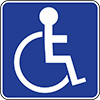 Qualifications on National
Qualifications on National
Qualification Register (NQR) NSQF aligned QP Listing
NSQF aligned QP Listing
on Skill India Portal SCPwD Borrowed QP Listing
SCPwD Borrowed QP Listing Standalone NOS Listing
Standalone NOS Listing Borrowed QP Listing
Borrowed QP Listing Content Availability
Content Availability
Standards and Frameworks
National Occupational Standards (NOS)
National Occupational Standards (NOS) specify the standard of performance (together with the knowledge and understanding) an individual must achieve when carrying out a function in the workplace. NOS are benchmarks of good practice. As part of a skilling qualification, each NOS defines one key function (standards of performance and required knowledge/understanding) in a job role.
NOS are National because they apply to the whole country. NOS can only be developed by the Sector Skills Councils (SSCs) or other NCVET recognized standards-setting organizations in consultation and collaboration with the industry.
NOS are Occupational because they define all the key functions someone should be able to carry out in an occupation – for example, farming, management, policing, or production engineering.
NOS are Standards because they describe not just the essential things that people in an occupation must be able to do, but also cover the outcomes they must achieve. NOS represents a consensus view amongst a variety of employers.
Like all standards, NOS must be kept up-to-date. Once approved and published, their use is monitored and modified over time as per the requirements.
How are NOS utilized in Skilling Ecosystem:
- NOS are used to build qualifications for training programmes.
- Sectors, organisations, or individuals can use NOS as the platform for almost any other aspect of human resource management and development,
- Workforce planning.
- Performance appraisal and development systems
- Job descriptions
- Workplace coaching
- Reflective practice
Group of NOS - Qualification Pack (QP)
A set of NOS aligned to a job role make a QP. Qualification packs are available for every job role in each industry sector. These drive the creation of qualification, curriculum and assessments.
- Qualifications developed by awarding bodies and approved by the National Skills Qualifications Committee (NSQC) are regularly revised according to industry needs.
- Each revision leads to the creation of a new version of the qualification, which should be taken for implementation to ensure the skills imparted are aligned with the market requirements.
- When new versions of Qualifications get approved, the previous versions are archived or deactivated on National Qualifications Register (NQR) and Skill India Portal (SIP), respectively.
Click here for more information: QP-NOS document.
National Frameworks
National Skills Qualification Framework (NSQF)
In December 2013, the Cabinet Committee on Skill Development approved the National Skills Qualifications Framework (NSQF), a quality assurance framework which organizes qualifications according to a series of levels of knowledge, skills, and aptitude. These levels are defined in terms of learning outcomes which the learner must possess regardless of whether they were acquired through formal, non-formal or informal learning. NSQF has been developed in partnership with industry/employers and offers a transparent, accountable, and credible mechanism for skill development across various sectors.
The objectives of the NSQF are:
- Accommodate the diversity of the Indian education and training systems.
- Development of qualifications based on outcomes which are accepted across the nation.
- Provide structure for development and maintenance of progression pathways that assist people to move easily between different education systems, training sectors and the labour market.
- Give individuals an option to gain recognition for their prior learning experiences.
- Support National and International mobility through increased recognition and comparability of Indian qualifications.
National Credit Framework (NCrF-2023)
- The National Credit Framework (NCrF) is an inclusive one single meta framework to seamlessly integrate the credits earned through school education, higher education, and vocational & skill education.
- The National Credit Framework (NCrF) encompasses National Higher Education Qualification Framework (NHEQF), National Skills Qualification Framework (NSQF) and National Curriculum Framework (NCF)/ National School Education Qualification Framework (NSEQF).
- The Framework has been built on the strength of existing regulations, guidelines, and qualification frameworks of UGC, AICTE, NCVET, NCERT, CBSE & NIOS and the credit system being followed by IITs, IIMs, NITs and other INIs.
- NCrF makes the options for Multiple Entry-Multiple Exit (ME-ME) available, accessible, and applicable across higher education, school education and vocational education.
The Framework (NCrF) provides for Assignment, Accumulation, Storage, Transfer & Redemption of Credits. It paves way for multi-disciplinary education and empowers students through flexibility in choice of courses for choosing their own learning trajectories and programmes.
For any queries, please write to us at standardsteam@nsdcindia.org
Click on a Sector to Access Its National Occupational Standards & Model Curriculum From Their Website
- 46357 reads








































